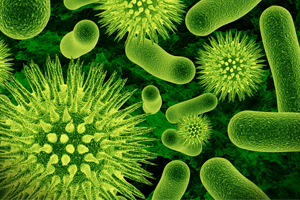








 The beneficial bacteria that make up the bulk of your gut flora are called “probiotics.” These tiny symbiotic organisms provide a wide range of benefits to your health, including keeping your digestive system healthy, aiding in nutrient absorption, boosting your immune system and even helping guard against cancer.
The beneficial bacteria that make up the bulk of your gut flora are called “probiotics.” These tiny symbiotic organisms provide a wide range of benefits to your health, including keeping your digestive system healthy, aiding in nutrient absorption, boosting your immune system and even helping guard against cancer.
The benefits of probiotics were first discovered by Dr. Eli Metchnikoff, who studied the lifestyle of Russian peasants found to be living unusually long life spans. He noticed that their diet consisted of large amounts of fermented milk, which carry high levels of probiotics, and linked their longevity to this diet.
The two most common types of probiotics are bifidobacteria and lactobacilli, which can be taken either in food or as a supplement to help balance our gut microflora after an illness or course of medications such as antibiotics. The excessive use of antibiotics can lead to a proliferation of problems, as they not only wipe out the bad bacteria, but take out the good as well. This allows for opportunistic organisms to gain a foothold, such as candida, a naturally occurring yeast that lives harmlessly in the digestive tract. If it is able to grow unchecked by good bacteria, it may transform into fungal form and cause all manner of health issues, such as tiredness, fuzzy thinking, leaky gut, etc. Probiotics ensure that harmful microbes are kept in check in your digestive system.
The body normally carries over 400 different strains of these microorganisms in its digestive tract, amounting to 10 trillion in total. This is 10 times more than all the cells in your body. Though the greatest concentrations of probiotics live in the colon, they reside in many other parts of the body as well, helping to support the immune system. Up to 80% of our immune response is dependent on probiotics, which stimulate the production of macrophages, T-cells and cytokines. They also produce natural antibiotics that are able to fight many pathogens that have developed a resistance to standard antibiotics. And if a pathogen develops resistance to one of the antibiotic chemicals produced by the probiotic, it has the ability to adapt that chemical to one that is more effective in fighting the pathogen, which standard antibiotics are unable to do.
Studies have found probiotics to be antagonistic to many types of cancer, stimulating the production of cancer-fighting chemicals in the body, leading to the shrinkage of tumors and encouraging cancer cell death. Probiotics also help fight against viruses, including colds, flus, herpes, rotavirus and ulcers. In a study done on 2- to 5-year-old children in India who were given either probiotics or placebo for 6 months, those taking the probiotics had fewer cases of cold, flu, fever and diarrhea than those taking placebo.
Probiotics can naturally be found in different fermented foods such as yogurt, kimchee, kefir, miso, kombucha and sauerkraut. Look for labeling that states “live active cultures” on the package to ensure you are getting useful probiotics in your food.